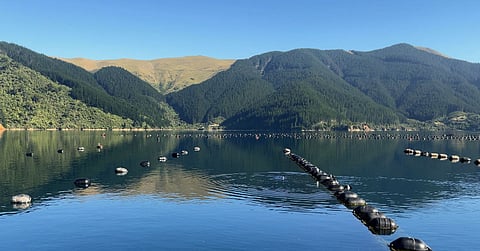

A company based in New Zealand's Tasman District has begun a one-year research trial aimed at reducing the number of mussel floats that get lost at sea each year.
Aquaculture float specialist SS Floats is partnering with the country's Ministry for Primary Industries (MPI) to devise an improved float and attachment method for longline mussel farming.
MPI is contributing NZ$72,500 (US$52,588) towards the NZ$145,000 (US$105,177) project through the Sustainable Food and Fibre Futures (SFF Futures) fund.
The new design is expected to be able to withstand the unpredictability of open waters better than the existing floats.
SS Floats lead designer Paul Smith said the old design proved satisfactory for over 40 years, as mussel farming in New Zealand began in sheltered bays. However, the move by mussel farming companies to more exposed waters meant that a new design was necessary.
Currently made of plastic, mussel floats can occasionally come loose due to adverse weather or tidal conditions. Mr Smith has been contemplating this issue for some time, so a prototype solution was quickly developed and prepared to test once funding was approved.
Newly developed trial floats have proven the effectiveness of the design. Testing will later be moved to more exposed waters in different parts of the country.
Floats that get loose are generally recovered, said Ned Wells, general manager of the Marine Farming Association, which is supporting the research project. However, going around and collecting the floats is an expensive exercise.
Data collected over the last 10 years shows between 500 and 1,500 floats are lost from Top of the South mussel farms each year, with an annual cost of at least NZ$500,000 (US$362,680).
The new floats will be tested in the open waters of Golden Bay, Tasman Bay, Pegasus Bay, and off the coast of Coromandel.
